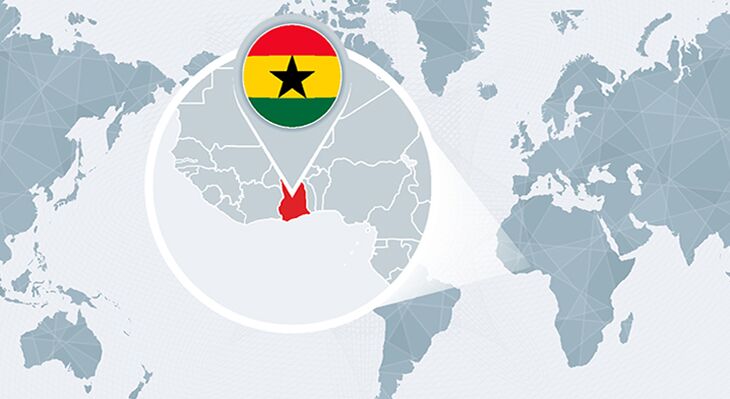An insight into GOVET’s cooperation activities: VET reporting in Ghana
GOVET and the Ghanaian Council of Technical and Vocational Education and Training collaborate in reporting on VET. While the first Ghanaian TVET report is still work in progress, the collaboration itself is already a good example of adapting aspects of the German Dual system to other VET systems.
In Germany, the data report on VET is published annually and compiles the statistical basis for policy and decision makers on more than 500 pages. Since its first edition in 1977, the report has evolved and combines different data sets on vocational training, labour market statistics and BIBB’s own surveys.
The starting point for VET reporting in Ghana is quite different. The Ghanaian Council of Technical and Vocational Education and Training (COTVET) was founded in 2006 and since then has introduced a wide range of initiatives. These are among others the implementation of a competence-based-system, restructuring the accreditation system for TVET providers and the establishment of a national qualification framework. With regards to a new Education Regulatory Bill that consolidates more responsibilities under COTVET, which was approved by Parliament in June 2020, COTVET seeks a solid basis for decision making in TVET.
In a Joint Declaration of Intent, both, the Ghanaian Ministry of Education and the German Federal Ministry of Education and Research, have agreed to intensify their cooperation in VET mid of 2019. Read more here
During a study visit of a Ghanaian Delegation to Germany, COTVET and GOVET have agreed on several activities, among them the cooperation in VET reporting.
During the first phase of collaboration between COTVET and GOVET, a few principles of adapting or transferring aspects of the German Dual system to the Ghanaian context, have evolved:
1. Start with the available resources
COTVET and GOVET have quickly discovered that a complex topic such as VET reporting must be developed out of the local implementation context. For instance, when discussing the potential topics of the TVET report in Ghana, COTVET and GOVET took into consideration the available data and relevant topics for the Ghanaian context.
2. Do not copy one system onto another
As in many other partnerships projects in VET, a mere copy-paste-approach is usually not successful. Some structures of the Dual VET system are very particular, for example the high share of workplace learning. In Ghana and many other countries, VET usually takes place in VET institutes that have their own workshops and offer company internships. When talking about VET reporting, some indicators valid in Germany may not have the same relevance in other countries due to different VET systems in place.
3. Implement sound project management
Soon after project start, COTVET and GOVET realized that many different stakeholders would be involved over the course of the project. This, and the fact that VET reporting is a complex undertaking, emphasized the need for a well-established project management structure. The project management not only includes work and activity planning, but also scoping, communication strategy, and stakeholder engagement, among others. Another success factor so far has been regular communication: Due to COVID-19, face-to-face meetings and workshops could not be held as planned initially. COTVET and GOVET therefore arranged weekly online sessions to collaboratively work on the common project.
